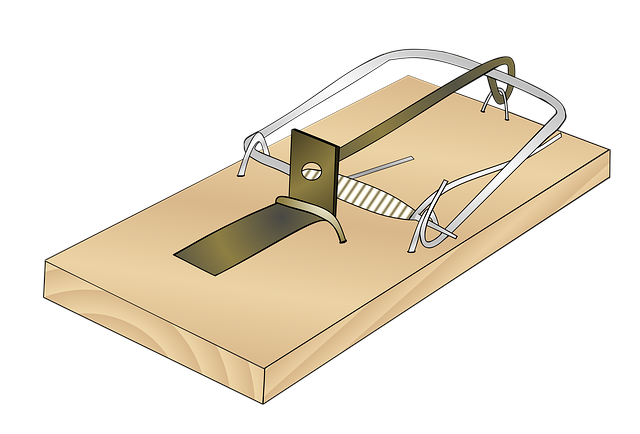Commercial pest control is a specialized service addressing infestations in large-scale settings like offices, warehouses, and restaurants. It requires an understanding of diverse pests (rodents, birds, termites) and tailored strategies for eradication. Professionals use advanced techniques, regular inspections, eco-friendly treatments, and preventive measures to safeguard businesses, minimize damage, maintain health, and enhance productivity. Integrated Pest Management (IPM), an eco-friendly approach, combines monitoring, cultural practices, physical controls, and strategic pesticide applications. Specialized services offer tailored treatments for specific pests, leveraging advanced chemicals, eco-friendly solutions, or non-chemical methods. Today, commercial pest control shifts towards safer, greener solutions to protect the environment and promote health. Adhering to regulatory standards is crucial for industrial sectors, with professionals ensuring compliance through tailored strategies and comprehensive documentation. Technological advancements like smart sensors and biological controls drive industry innovations, enhancing protection while minimizing environmental impact. Successful implementations, as seen in manufacturing and food processing facilities, demonstrate the transformative power of professional, tailored commercial pest control interventions.
In the realm of industrial operations, effective commercial pest control is paramount. This comprehensive guide delves into the essentials of managing pests in various industrial settings, from understanding basic concepts to exploring advanced solutions. We examine common pests, their impact, and innovative prevention strategies tailored for industrial environments. Discover integrated pest management (IPM) approaches, targeted treatments, and eco-friendly practices ensuring regulatory compliance. Explore real-world case studies showcasing successful industrial pest control implementations. Uncover the latest technological advancements revolutionizing this field.
Understanding Commercial Pest Control: The Basics
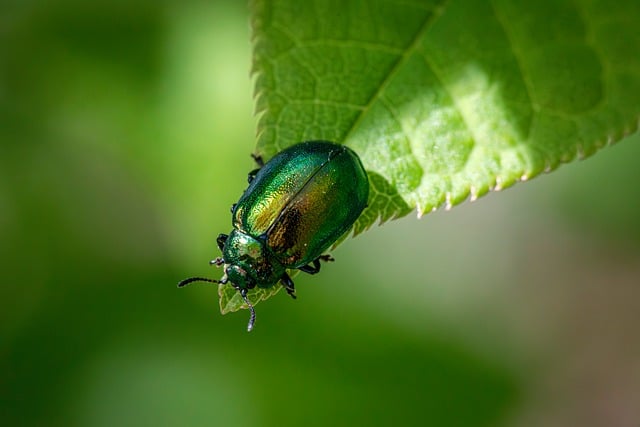
Commercial pest control is a specialized service designed to address pest infestations in commercial settings, such as office buildings, warehouses, and restaurants. Unlike residential pest control, which focuses on individual homes, commercial pest management requires a deeper understanding of large-scale environments and unique challenges. One key aspect involves identifying the specific pests prevalent in these areas, which can range from rodents and insects to birds and termites, each requiring tailored strategies for effective elimination.
Professionals in this field employ advanced techniques and tools to ensure thorough and safe pest control. This includes regular inspections to pinpoint potential entry points or nesting areas, targeted treatments using eco-friendly chemicals when necessary, and the implementation of preventive measures to deter pests from returning. Effective commercial pest control not only protects businesses’ bottom lines by minimizing damage and disruption but also ensures a healthier and more productive environment for employees and customers alike.
Common Pests in Industrial Settings and Their Impact
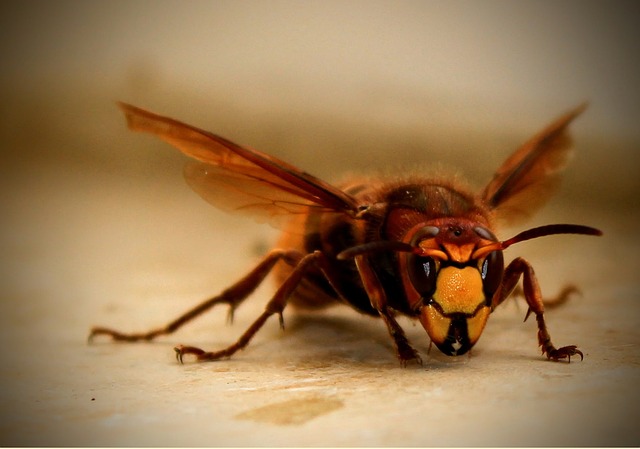
In industrial settings, a variety of pests can pose significant challenges due to their potential to cause damage to infrastructure, disrupt operations, and pose health risks to employees. Common pests in these environments include rodents, insects like termites and ants, and even birds. Rodents, for instance, are adept at finding their way into warehouses and manufacturing facilities, where they can gnaw on electrical wires, causing short circuits and fires. Termites and ants can infiltrate structures, eating away at wooden beams and other materials, leading to structural damage over time. Birds, particularly pigeons, often nest in industrial areas, leaving behind feces that not only contaminate products but also create a slip hazard.
The impact of these pests on industrial operations is substantial. They can disrupt production schedules, cause financial losses due to damaged goods and equipment, and even lead to legal issues related to food safety and health regulations. Commercial pest control services play a crucial role in mitigating these issues by employing specialized strategies and treatments tailored to the unique needs of industrial facilities. Effective commercial pest control not only protects infrastructure but also ensures a safer, more efficient working environment for employees.
Effective Prevention Strategies for Industrial Environments
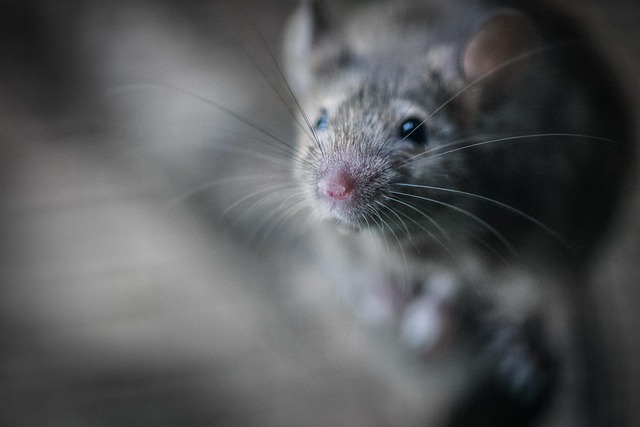
Integrated Pest Management (IPM): A Holistic Approach
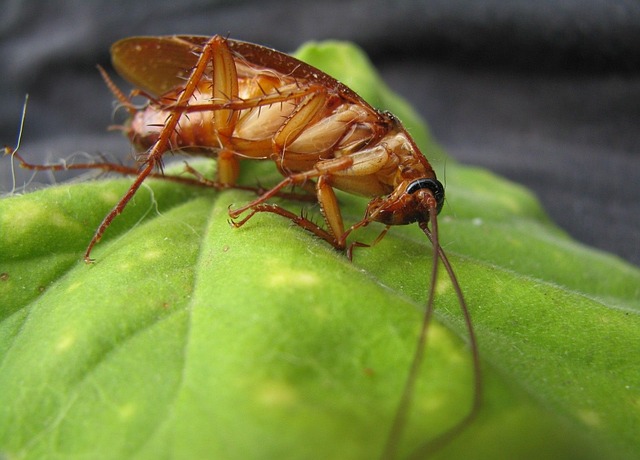
Integrated Pest Management (IPM) is a comprehensive, eco-friendly approach to commercial pest control that prioritizes prevention over eradication. This method involves a combination of strategies, including regular monitoring, cultural practices, physical controls, and targeted applications of pesticides as a last resort. By focusing on long-term sustainability, IPM not only reduces the reliance on harmful chemicals but also minimizes environmental impact.
In commercial settings, where large areas need to be protected, IPM offers a systematic way to manage pests effectively. It starts with identifying potential entry points and optimizing sanitation practices to deter pests naturally. Trained professionals then employ strategic treatments, such as biological controls or targeted insecticides, only when and where needed. This tailored approach ensures that businesses maintain a clean, safe environment for both employees and customers while preserving the ecological balance surrounding the premises.
Targeted Treatment Options for Specific Pests
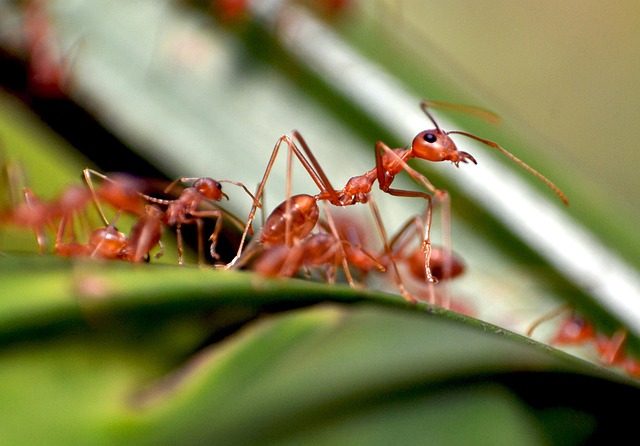
In the realm of commercial pest control, one of the key benefits of specialized services is their ability to offer targeted treatment options for specific pests. This tailored approach ensures that businesses address the unique challenges posed by various insects and rodents effectively. For instance, a professional pest control team can identify and mitigate infestations like ants, termites, or rodents with customized strategies. These treatments may include advanced chemical applications, eco-friendly solutions, or innovative non-chemical methods, all designed to target the specific pest without causing harm to human health or the environment.
By understanding the behavior and biology of different pests, commercial pest control experts can implement targeted measures that are more efficient and less disruptive. This precision in treatment not only saves time and resources but also contributes to a safer and healthier workplace environment. Such specialized services are particularly valuable for food processing facilities, storage areas, and other commercial spaces where pest management is critical to maintain hygiene standards and comply with regulatory requirements.
Safe and Eco-Friendly Pest Control Practices
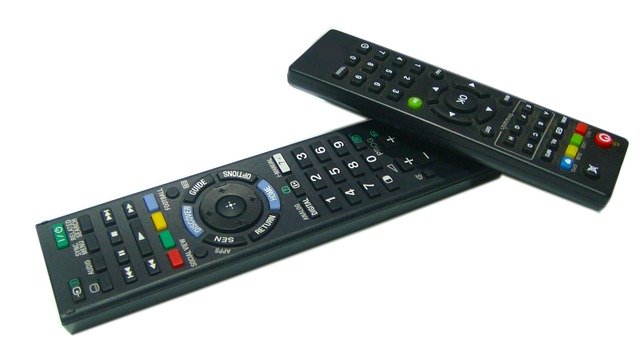
In today’s world, where environmental consciousness is paramount, commercial pest control services are increasingly adopting safe and eco-friendly practices. These methods prioritize minimizing the use of harmful chemicals and instead focus on biological controls, traps, and natural repellents to manage pest populations. Such an approach not only reduces environmental impact but also ensures a healthier workplace for employees and nearby communities.
By integrating green pest control solutions, commercial facilities can effectively prevent and eliminate pest infestations while maintaining sustainability. This shift towards eco-friendly practices is not just beneficial for the environment; it also aligns with consumer preferences for businesses that demonstrate corporate social responsibility. As such, many companies are choosing to invest in these safe pest control methods to protect their reputation and contribute to a greener planet.
Regulatory Compliance in Commercial Pest Management
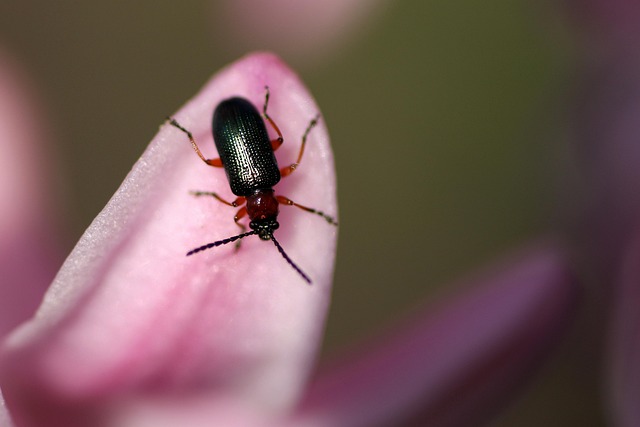
In the realm of commercial pest control, regulatory compliance is paramount. Businesses operating in industrial sectors must adhere to stringent health and safety standards set by local, state, and federal authorities. These regulations are designed to protect employees, customers, and the environment from potential hazards posed by pests like rodents, insects, and invasive species. Non-compliance can result in hefty fines, legal repercussions, and damage to a company’s reputation.
Effective commercial pest control involves staying abreast of these evolving regulations, implementing best practices, and employing eco-friendly solutions whenever possible. Professional pest management services play a crucial role in ensuring regulatory compliance by providing tailored strategies that address specific industrial needs. Regular inspections, targeted treatments, and comprehensive documentation are key elements in maintaining a safe and controlled environment, thereby facilitating smooth operations for industries across the board.
Technology Advancements in Industrial Pest Control

The world of industrial pest control has seen a significant transformation due to technological advancements, revolutionizing how professionals approach commercial pest management. Modern innovations offer more efficient and environmentally conscious methods for dealing with infestations in large-scale settings. One notable development is the integration of smart sensors and monitoring systems that can detect even the slightest signs of pest activity. These technologies enable faster response times as they provide real-time data, allowing treatment teams to target specific areas affected by pests.
Additionally, the adoption of advanced chemicals and biological agents has enhanced the effectiveness of commercial pest control services. Modern insecticides are designed with improved formulations that offer better residual effects, ensuring long-lasting protection. Biological control methods, such as introducing beneficial insects or using microbials, provide eco-friendly alternatives to traditional pesticides. These advancements cater to the growing demand for sustainable and non-toxic solutions in industrial settings, addressing concerns about worker safety and environmental impact.
Case Studies: Successful Implementation of Pest Control Solutions
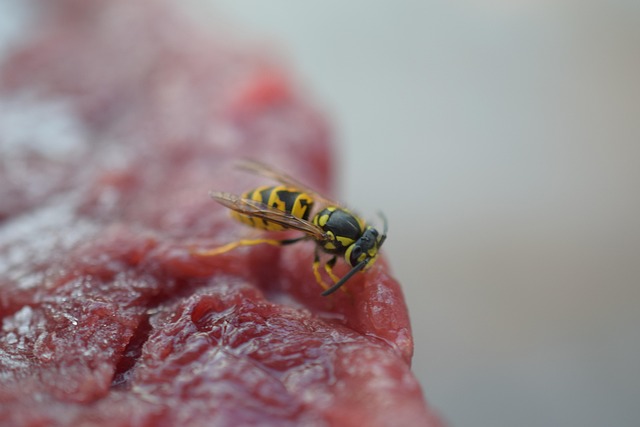
Successful implementations of industrial pest control solutions offer valuable insights and case studies that can guide businesses in adopting effective strategies. For instance, a leading manufacturing plant in North America struggled with persistent insect infestations, affecting product quality and safety standards. By partnering with experts in commercial pest control, they implemented a multi-faceted approach involving regular inspections, targeted treatments, and employee training. This comprehensive strategy not only eliminated the existing infestations but also prevented future intrusions, significantly enhancing operational efficiency and ensuring adherence to stringent industry regulations.
Another compelling example involves a large-scale food processing facility facing challenges with rodent control. Through meticulous planning and execution, a specialized pest management team integrated various techniques including advanced trapping systems, habitat modification, and regular monitoring. These measures proved highly effective in reducing rodent activity, minimizing damage to infrastructure, and maintaining the highest standards of food safety. These case studies demonstrate that tailored, professional interventions can transform industrial settings, fostering healthier environments and ensuring uninterrupted business operations.
